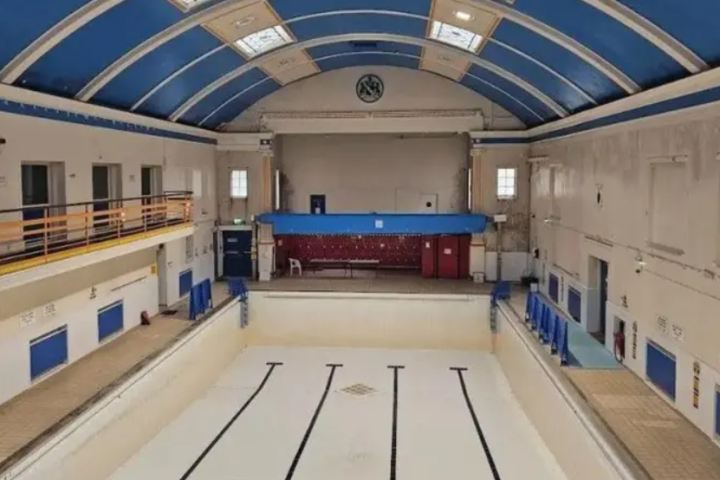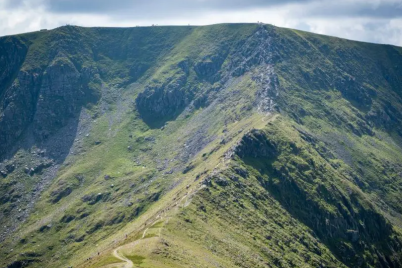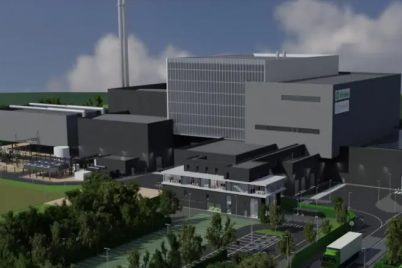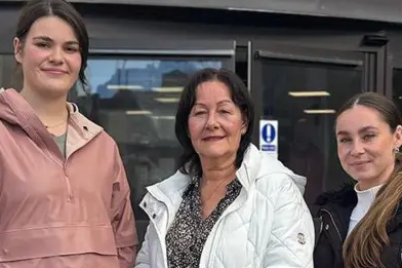Bradford Council has confirmed it plans to sell Bingley Pool five years after it closed during the coronavirus pandemic, sparking renewed anger and determination from campaigners fighting to see it reopened.
The pool, once a key community facility used by families, schools and competitive swimmers, had been earmarked for a multimillion-pound refurbishment and reopening. However, the cash-strapped local authority has now declared the site “not viable” to maintain or operate, ending years of uncertainty over its future.
The council intends to sell the site as an Asset of Community Value, which gives local groups six months to prepare a bid before any private sale can take place. The Friends of Bingley Pool group, which has campaigned tirelessly to save the site, confirmed they plan to use this period to negotiate a Community Asset Transfer arrangement with the council. Under such a deal, ownership would initially remain with the council while the Friends group and local residents would take responsibility for raising funds to repair and restore the facility. Full transfer of ownership could happen later if the group can demonstrate the pool’s long-term sustainability.
Bingley Pool had previously been included in plans to benefit from £14 million in Levelling Up Funding secured under the previous Conservative government, but following the election of a Labour government, the bid was rejected after a national review of all projects. A council spokesperson said an extensive review had since concluded that the facility was no longer viable even if the Levelling Up funding had been approved. “It is important to note that even with the LUF money there was a significant funding gap and a requirement for a third-party operator to run the pool,” they said. The spokesperson added that the council had already met with representatives of the Friends of Bingley Pool and recognised the “strength of feeling” in the community.
Jeremy Thackray, co-chair of the Friends of Bingley Pool, criticised the council’s decision and said it ignored strong local demand for the pool to be reopened. “The Friends recognise the difficulty of Bradford Council’s finances, but the answer cannot be a continuous cut-price selloff of treasured community assets,” he said. “A community-led approach can make something positive happen in the town, and the Friends of Bingley Pool will do all they can to argue for this.”
Thackray also argued that the council’s previous decision to submit a Levelling Up bid proved the pool had once been considered viable. Although repair and refurbishment costs are significant, he believes a partnership with a private provider or access to external grant funding could make the project sustainable.
The pool’s closure has had knock-on effects for local schools, which are now struggling to meet their statutory obligation to provide swimming lessons. “They have to get transport out to Shipley to do their lessons, and as a result Shipley is at the point of being oversubscribed now as well,” Thackray said. “They’re either having to do that or getting in temporary splash pools at the schools themselves.”
On social media, many residents criticised the decision and expressed frustration that community facilities like Bingley Pool were being lost. One commenter wrote, “Disgusting that Bradford Council think it’s surplus. The alternatives are rubbish. Keighley pool is not for swimmers, Shipley pool is rammed, and Bingley has always been a good swimmers’ pool. As long as they’ve got enough money for stupid projects in the city centre, that’s what matters, eh?”
Others reminisced fondly about the pool’s past, recalling when it doubled as a cinema space in winter months. “…they’d stop the film (usually something like Genevieve after lots of cartoons) warn us that we’d all get kicked out. The film would start again and the little white plastic drink cups would start flying again.”
The closure of Bingley Pool reflects a wider national trend of declining access to public swimming facilities. The GMB Union has warned that children and young people are at greater risk of drowning because of the number of swimming pools that have closed in recent years. According to national data, around 500 public pools have shut since 2010, with almost half closing since the Covid pandemic. A coalition including the Local Government Association has called for renewed investment in local leisure infrastructure, warning that 30% of children in Year 7 cannot swim 25 metres confidently, up from 27% in 2017–18.
Campaigners say this decline highlights the importance of keeping facilities like Bingley Pool open. They argue that swimming pools are not just leisure spaces but vital public health resources that teach essential life skills and promote community wellbeing. As the Friends of Bingley Pool prepare to negotiate with the council and seek funding, they remain hopeful that a community-led solution can revive the pool.
“Bingley deserves a pool,” Thackray said. “And we’re going to fight to make that happen.”
















